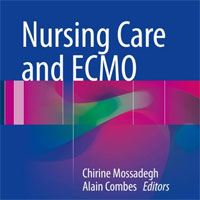Tag: sepsis

Effect of Adjunctive Vitamin C, Glucocorticoids, and Vitamin B1 on Sepsis
We aimed to compare the effects of vitamin C, glucocorticoids, vitamin B1, combinations of these drugs, and placebo or usual care on longer-term mortality in adults with sepsis or septic shock. MEDLINE, Embase, CENTRAL, ClinicalTrials.gov... read more

Can Early Cytokine Profile Discriminate Between GPB and GNB?
Sepsis is a principal cause of death in critical care units worldwide and consumes considerable healthcare resources. The aim of our study was to determine whether the early cytokine profile can discriminate between Gram-positive... read more

Difference in Sepsis Patients Outcomes Between First and Second-Hit Infections
Our study identifies a fundamental difference in patient outcomes between first-hit and second-hit bacterial infections, which may be due to genetic, microbiological, immunological, and environmental factors. This finding... read more

Multicomponent Sepsis Transition Effect and Recovery Program After Sepsis
In a multisite randomized clinical trial of patients hospitalized with sepsis, patients provided with a 30-day program using a nurse navigator to provide best practices for postsepsis care experienced a lower proportion of... read more

ARDS vs. PseudoARDS – Failure of the Berlin Definition
True ARDS might be defined as a histological diagnosis involving diffuse alveolar damage throughout the lungs (characterized by hyaline membrane formation and thickening of the alveolar walls). PseudoARDS refers to patients... read more

The Use of Different Sepsis Risk Stratification Tools Uncovers Different Mortality Risks
Our data suggest that the sepsis risk stratification tools currently utilized in emergency departments and on the general wards do not predict mortality adequately. This is illustrated by the disparity in mortality risk... read more

Emerging Advances have the Potential to Change the Future of Sepsis Care
In recent years, many advances in the sepsis literature have occurred, including new definitions, changes to the Surviving Sepsis Campaign (SSC) bundles, new pharmacologic agents, and adjunct treatments. There are also... read more

Timing of Antibiotic Therapy in the ICU
Severe or life threatening infections are common among patients in the intensive care unit (ICU). Most infections in the ICU are bacterial or fungal in origin and require antimicrobial therapy for clinical resolution. Antibiotics... read more

Epidemiology of Intravenous Immune Globulin in Septic Shock
Intravenous immune globulin is used infrequently across the US in patients with septic shock. Regimens of IVIG in septic shock may be less intensive than those associated with a survival benefit in meta-analyses. Observed... read more

Higher ICU Sepsis Case Volume Associated with Significantly Lower Hospital Mortality
In this cohort study of 273,001 patients with sepsis at 231 ICUs in the UK, a higher annual sepsis case volume in the ICU was associated with significantly lower hospital mortality, and this association had no significant... read more

The Gut in COVID‑19
In the last year, a growing number of articles addressed coronavirus disease 2019 (COVID-19), including its link with gastrointestinal (GI) (dys)function. We here highlight the most important findings regarding the role of... read more

Sepsis: Clinical Diagnosis and Treatment
Sometimes our body's reaction to infection can result in damage to internal tissues and organs. Such a condition is referred to as sepsis. Some of the symptoms of sepsis are high fever, increased heart and breathing rate,... read more

Adult Critical Care Medicine
This clinical casebook provides a comprehensive yet concise state-of-the-art review of adult critical care medicine. Presented in a case-based format, each case focuses on a scenario commonly encountered with an adult patient... read more

Reducing the Global Sepsis Burden: A Positive Legacy for the COVID-19 Pandemic?
ESICM, SCCM, and the GSA published a consensus paper in Intensive Care Medicine, emphasising the importance of recognising that patients critically ill with COVID-19 have viral sepsis, despite some differences from sepsis... read more








